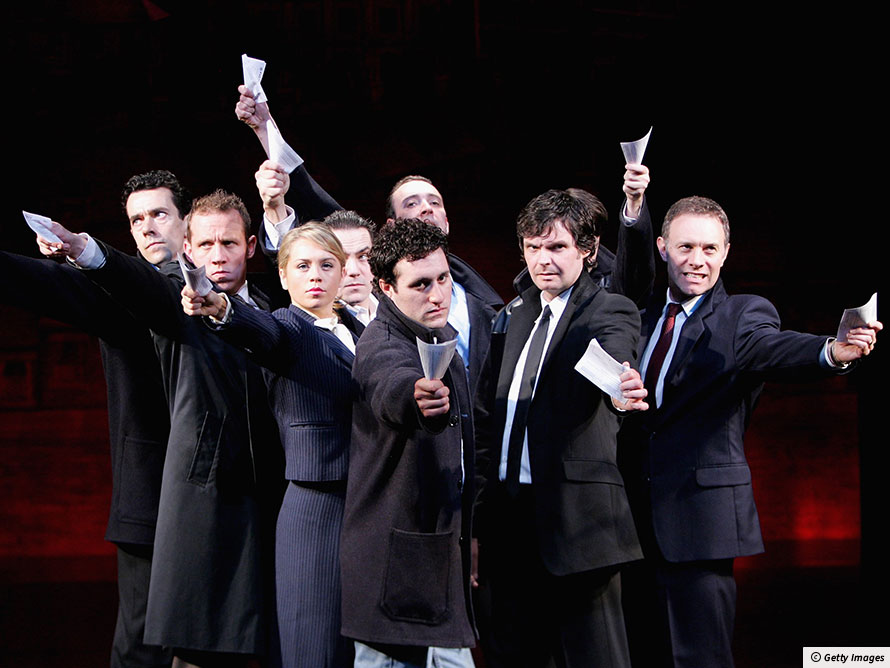Willy Russell’s Blood Brothers — a musical written and set in a ThatcherOften refers to Margaret Thatcher, Britain's prime minister from 1979 to 1990. -era Britain riven by the economic forces of unemployment, recession and growing inequality — invites the audience to consider whether social class or individual choice plays the greater role in shaping the course of a person’s life. It tells the story of twins separated at birth; Mickey remains with his poverty-stricken single mother, while Eddie is raised in an affluentWealthy. middle-class family. Even as their lives move in opposing directions, shaped by their different backgrounds, they are repeatedly drawn together by forces seemingly outside their control — with ultimately tragic consequences.
Blood Brothers

Glossary
Thatcher - Often refers to Margaret Thatcher, Britain's prime minister from 1979 to 1990.
Affluent - Wealthy.
Recession - A period of economic decline. A recession occurs when a country’s Gross Domestic Product falls for six months in a row.
Nurture - Care for something, especially while it is growing.
Capitalist - Related to an economic system based on private ownership of businesses and goods.
Redundant - Not needed any more. Someone who is made redundant loses their job because their work is not needed.
Relinquish - Voluntarily cease to keep or claim; give up.
